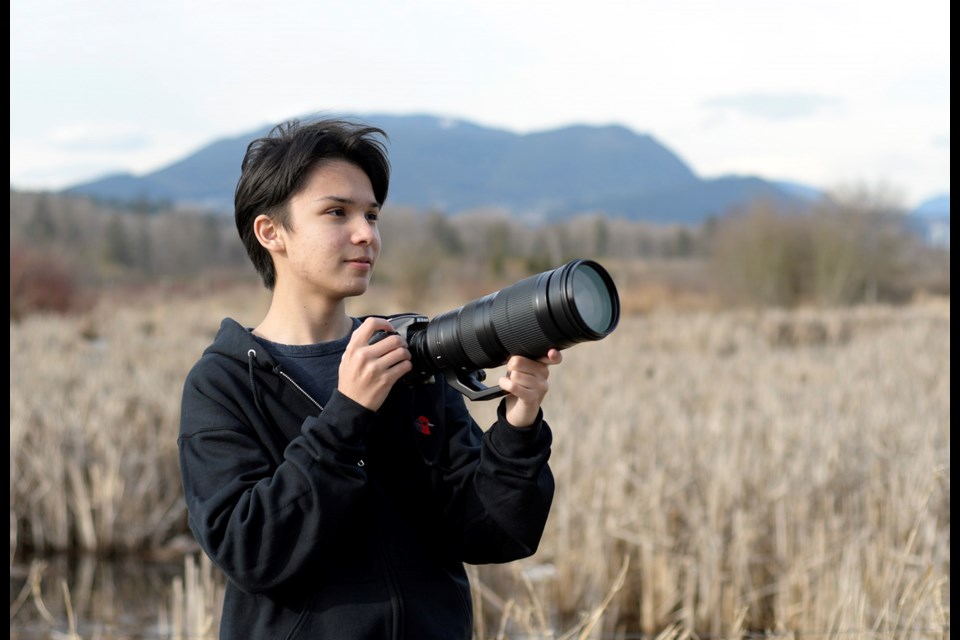A birding game developed by a Coquitlam teenager is taking flight.
Adam Dhalla, 16, says his Find My Birds mobile app is already being played in 45 countries on six continents since it was first made available on the Apple and Google app stores in April.
In the works for more than two years, the game is an animated virtual birding experience that drops users into various environments like Saguaro National Park in Arizona where they’ll able to walk around and view and photograph birds in their habitat of native flora. When a bird is spotted, it can be logged into a field guide that also provides information about the bird. The more times you find a bird species, the more information — like the birds’ diet, conservation efforts, audio recordings of its calls, photos and video — you get.
As the game progresses, users are also challenged with conservation quests to remove invasive species of plants or help rescue other endangered birds.
Dhalla, who won the American Birding Association’s young birder of the year award in 2018, said he developed the game to share his passion for the hobby with other young people on a familiar digital platform. But he hopes it will also be a catalyst to get them involved in conservation efforts.
“I see it as one more tool in the uncomfortably small toolbox available to bird conservation educators,” Dhalla said, adding the game includes information about conservation organizations.
Dhalla said the initial idea for creating a birding game came about six years ago. He started by collecting content and ideas for gameplay; he then sketched out rough concept art for the birds and habitats.
His own birdwatching expeditions also became fodder for his digital dream.
“One of the biggest challenges was that we didn’t have any template to be inspired by or go off of,” Dhalla said. “Developing the gameplay was mostly done casually while birding, gleaning inspiration from our personal experiences.”
With his own knowledge of programming limited to skimming a few game design books, Dhalla had to enlist experts like programmers and digital artists who could bring his concepts to life.
That’s not cheap.
When a crowdfunding effort came up short, and partnerships with various organizations failed to pan out, Dhalla’s dad, Adrian, created the non-profit Thought Generation Society to provide support for the development of conservation-based mobile apps.
Dhalla also got some funding from the federal government.
In the coming months, Dhalla said he will continue developing the game to add more habitats beyond Arizona as well as make it available on personal computers so it can be used in schools. He said the effort has been worth it, inspiring his own interests in the sciences and technology.
“Birds are a perfect way to get people interested in science, nature and the systems that underlie them,” he said.



